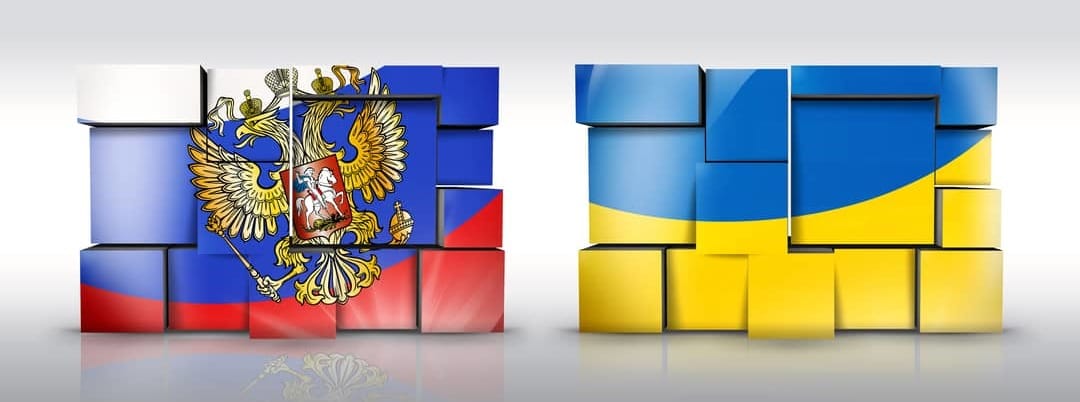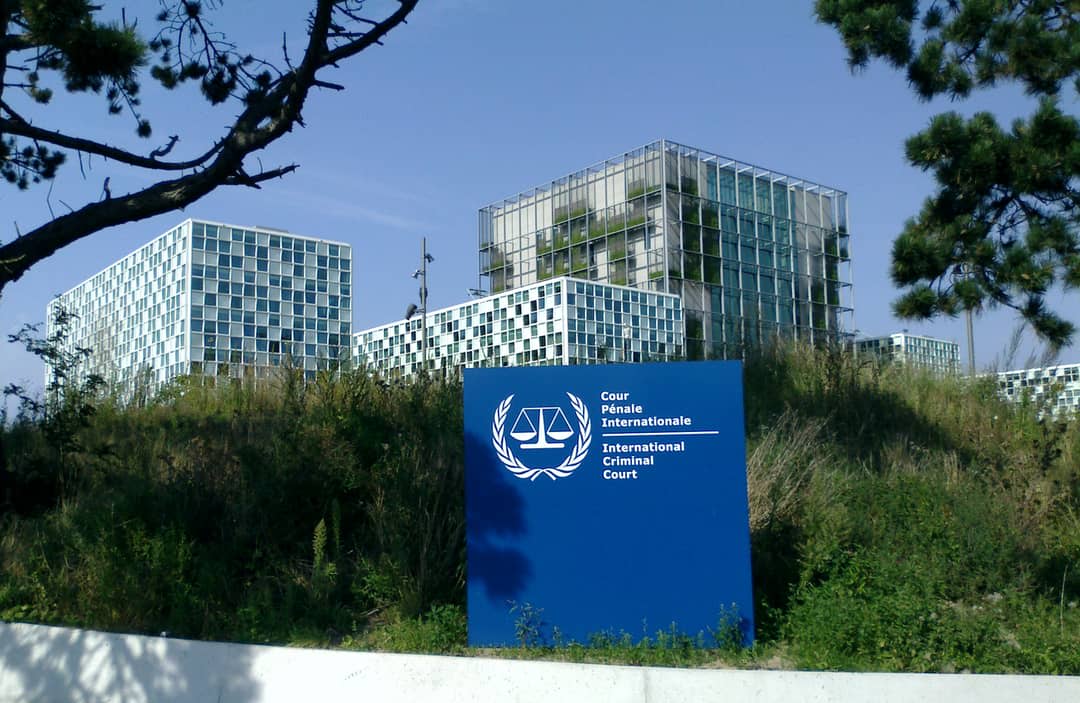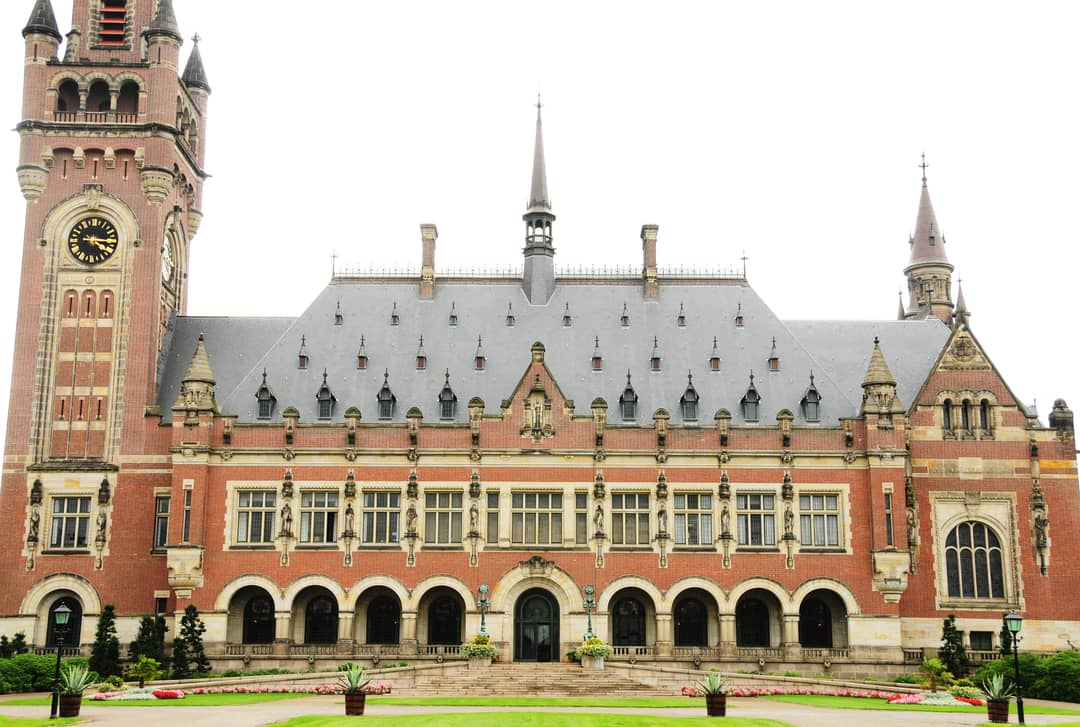
Last week, it was announced that the International Criminal Court (ICC) prosecutor was opening an investigation into the Russian invasion of Ukraine, examining whether any war crimes had been committed.
Then this week, the International Court of Justice (ICJ) held a preliminary hearing into the Ukrainian demand that it issue an emergency order that Russia stop its incursion.
Despite these two international courts having similar acronyms, they’re quite different. So, what are these courts, how do they differ, and what are their roles in the Ukraine-Russia conflict?
The International Criminal Court
As the name suggests, the ICC is a court that deals with criminal matters. Specifically, with war crimes, crimes against humanity, genocide and aggression. It was established in 1998 by a treaty, and has 123 member states (countries). The ICC has jurisdiction (authority) to investigate and prosecute international crimes if they’re committed on the territory of a member state, or by a national of a member state.
The ICC can go beyond this and investigate crimes alleged to have been committed on the territory of a non-member state if the United Nations (UN) Security Council has authorised it.

The ICC has 18 international judges who are elected by the member states. It also has an independent prosecutor whose office is responsible for investigating and prosecuting crimes. Karim Khan, from the UK, is the ICC’s newest prosecutor. The ICC is headquartered in The Hague and, as a criminal court, it prosecutes individuals, not countries. Punishment for anyone convicted is jail time.
The ICC and Ukraine
Neither Ukraine nor Russia are member states of the ICC, but Ukraine has previously accepted the ICC’s jurisdiction over any international crimes committed in its territory since 2014. An unprecedented 40 ICC member states (including Australia) referred the current situation in the Ukraine to the prosecutor, who decided to open an official investigation that may lead to prosecutions.
What crimes might be investigated?
The ICC will be investigating possible war crimes that Russians are committing in Ukraine. If Ukrainians commit any war crimes, then they may also be investigated by the ICC.
What the ICC will not have authority over is the crime of aggression. Despite the fact that Russia has clearly committed an act of aggression against Ukraine by invading, the rules on the ICC’s jurisdiction over the crime of aggression are different – if the aggressor state (Russia) is not a member of the ICC, then the ICC cannot exercise its jurisdiction, even if the victim state (Ukraine) has agreed to the court’s jurisdiction. The reasons for this are complex and political.
Who might be prosecuted?
The ICC is a “court of last resort”, which means it usually focuses on a small number of people who are considered most responsible for the crimes. Even if high-ranking commanders never actually set foot on the battlefield, they can still be held responsible for the crimes of their subordinates. The ICC can issue arrest warrants, but relies on member states to arrest and transfer any suspects to the court. Anyone wanted by the court might then avoid traveling to countries that are members of the ICC.
Could the ICC prosecute Putin?
Under international law, senior state officials such as presidents and prime ministers are immune from any kind of legal action in foreign courts. As an international court, the ICC does not allow immunity for any individuals over whom it has jurisdiction.
However, because Putin is the head of state of a non-member country, it’s legally more complicated as to whether the ICC can exercise jurisdiction over him. If the UN Security Council had referred the situation to the ICC (as it did with Sudan and Libya), then the court would be able to assert its authority over Putin.
But without UN Security Council authorisation, it’s uncertain as a matter of legal principle that the ICC will be able to assert jurisdiction over Putin while he remains president.

The International Court of Justice
The ICJ is older than the ICC. It was established after World War II as the principal judicial organ of the UN. It has 15 international judges who are elected by the UN General Assembly and Security Council, and it’s also based in The Hague. The ICJ hears legal disputes on a range of issues between countries, but it only has authority to adjudicate if the countries involved have agreed to its jurisdiction.
Ukraine v Russia
On 26 February, Ukraine filed an application with the ICJ to institute proceedings against Russia. Because Russia will not simply agree to the ICJ’s jurisdiction in this case, Ukraine has come up with a creative legal argument that may mean that the ICJ can adjudicate the matter.
Does the ICJ have jurisdiction?
One of the ways that the ICJ can exercise jurisdiction over a dispute is if the countries involved are parties to a treaty containing a dispute resolution clause that gives the ICJ jurisdiction. In this case, Ukraine is invoking the fact that both Ukraine and Russia are parties to the 1948 Convention on the Prevention and Punishment of Genocide, which has such a clause to enable the jurisdiction of the ICJ.
One of the pretexts Russia has used for the invasion is that Ukraine has committed genocide in its Donbas region, which, if true, would be a violation of the convention. Ukraine is arguing that it has not violated the convention, and is asking the ICJ to exercise its jurisdiction over a dispute arising in relation to it.
What does Ukraine want from the ICJ?
If the ICJ decides it does have jurisdiction to hear the matter, Ukraine is seeking a declaration from the court that Russia’s claim of Ukrainian genocide is false. Ukraine is also asking the ICJ to affirm that it’s unlawful for Russia to invade on this pretext, and wants an order of “full reparation for all damage caused by the Russian Federation as a consequence of any actions taken on the basis of Russia’s false claim of genocide”.
What happens next?
Proceedings at the ICJ (and ICC) take a long time. So Ukraine has also asked the ICJ for provisional measures in the interim. In the expedited hearing that took place on Monday this week, Ukraine asked the ICJ to order Russia to suspend its military campaign against Ukraine until the broader dispute is resolved before the court.
In the short term, it’s almost guaranteed that Russia will ignore anything the ICJ has to say. But a ruling from a respected international court will nevertheless have important symbolic significance, and will dispel any doubt that Russia’s invasion is not justifiable under international law.
Update: On 16 of March, the ICJ ruled in Ukraine’s favour on the provisional measures.





